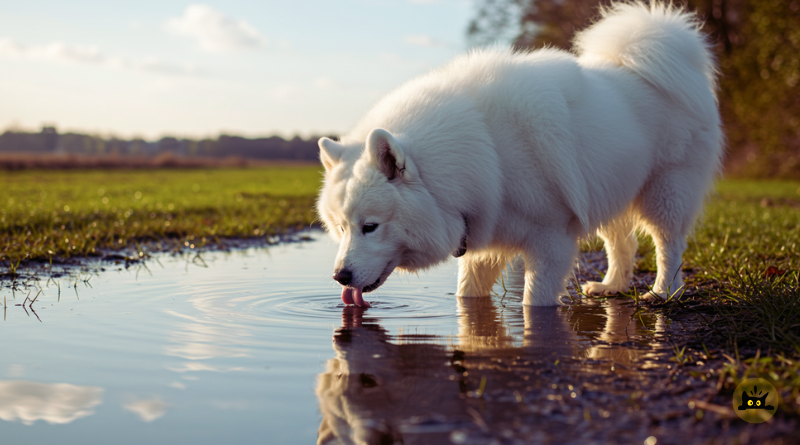This canine leptospirosis warning is designed to alert every dog owner to a serious illness caused by bacteria that can harm your dog’s kidneys and liver if you don’t treat it. These Leptospira germs grow in warm, damp places and can live in dirt or puddles for weeks. Your dog can get infected when those germs enter through cuts, scrapes or moist body linings like the eyes, nose or mouth. Drinking dirty water also puts your dog at risk. Recognizing this threat early and taking swift action can save your dog’s life.
Understanding the Leptospirosis Warning
Leptospirosis is an infection by Leptospira germs carried by wildlife and farm animals. Infected creatures shed these germs in their urine, contaminating soil and water. Once your dog is exposed, the incubation period can range from two days to two weeks. During that time your dog may look fine but the germs can multiply and begin damaging vital organs. Left unchecked, this infection can lead to kidney failure, liver damage, and even bleeding in the lungs.
How It Spreads
Dogs most often become ill when they wade through mud or water mixed with urine from infected animals. Common spreaders include rats, raccoons and skunks, which can carry the germs without seeming sick. Out in the wild, the bacteria can survive in puddles, ponds or slow streams, putting any dog at risk. Even a quick dip in a backyard puddle after heavy rain can expose your dog to infection.
Main Risks
- Often near puddles or flooded spots around yards or parks
- Areas where many rats or mice roam freely
- Country or farm settings close to livestock
- City green spaces where wild animals visit
Both rural and urban dogs can get leptospirosis if they encounter contaminated standing water.
Spotting Early Signs
Early signs can be hard to spot and often look like other common problems. Watch for:
- Tired and not interested in playing
- Not eating or skipping meals
- Throwing up or having loose stool, sometimes with blood
- Yellow gums or eyes showing a sick liver
- Drinking more and peeing more than usual
As the disease gets worse, your dog may have sore muscles, stiff legs or fast breathing if the lungs become involved. Any odd change should mean a quick visit to the vet.
What To Do
If you think your dog might have leptospirosis, act right away:
- Book a vet appointment as soon as possible
- Keep your dog away from other animals and people until it is checked
- Get rid of puddles in your yard and keep it dry
- Wear disposable gloves when handling your dog’s bedding or waste
Seeing the vet early helps your dog get better faster and stops the germs from spreading to your family or other pets.
At the Vet Clinic
At the clinic your vet will give your dog a full check up and run simple blood and urine tests to see how the kidneys and liver are doing. Lab tests find the germs or show your dog’s defense against them. Treatment usually means starting germ fighting medicine right away, giving under the skin fluids and using medicine to stop vomiting or ease pain. Some dogs need to stay at the clinic for extra care and close watching until they begin to recover.
Protecting People and Pets
Leptospirosis can spread to people, so take these steps at home:
- Wash your hands well after touching a sick or suspect dog
- Clean bowls, bedding and toys with a vet approved cleaner
- Have sick dogs relieve themselves in a safe spot away from others
- If anyone feels sick after touching the dog, see a doctor right away
Keeping things clean and your dog separated until it is better keeps your family and neighbors safe.
How To Prevent It
Preventing leptospirosis is easier than treating it. Yearly shots are the best protection for every dog, no matter where it lives. Puppies can get their first set of shots at around twelve weeks of age, with a second shot three or four weeks later. Yearly follow up shots keep your dog fully guarded against the main germs.
Keeping your dog’s area clean also makes a big difference. Avoid still water spots like puddles, ponds or slow streams. Keep trash bins closed to keep rats and mice away. Clean up yard clutter where wild animals hide. Together with shots, these steps block the germs and give your dog the best defense.
Conclusion
Leptospirosis can be very dangerous for dogs but is mostly preventable by staying alert, giving regular care and acting fast. Look for small signs like eating less or drinking more and call your vet right away if you see anything worrying. Yearly shots plus a clean yard give the strongest protection. By learning about this disease and taking action, every owner can keep their dog safe.
Sources : Merck Veterinary Manual, American Veterinary Medical Association, Veterinary Information Network
Check out another related article you might find useful: Kennel Cough Causes and Treatments

